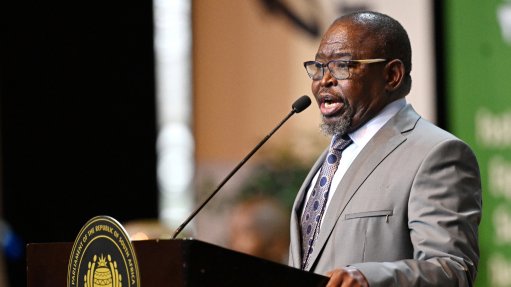AASA urges ATNS to act swiftly on suspended flight procedures to avoid more disruptions
The Airlines Association of Southern Africa (AASA) has called on State-owned Air Traffic Navigation Service (ATNS) to strengthen its collaboration with airlines to urgently resolve ongoing issues related to the suspension of instrument flight procedures (IFPs), warning that the situation has now become an operational crisis with far-reaching economic consequences.
AASA CEO Aaron Munetsi said in a statement on October 30 that the suspension of hundreds of IFPs, which are routes and approach procedures used by pilots to safely navigate take-offs and landings in low-visibility conditions, has caused widespread flight delays, diversions and cancellations.
“These disruptions, delays, diversions and flight cancellations – and their effects on customers, airlines and entire economies – are far more than a mere inconvenience. They are deeply damaging and simply unacceptable,” he stated.
He described the crisis as being “in its sixteenth month and with no clear end in sight”, adding that it threatened the economic viability of several towns and cities, as well as South Africa’s reliability as a trading and tourism partner.
“The crisis requires a commensurate response with intervention from Cabinet Ministers whose portfolios cover entire sectors of the economy that depend on reliable and safe air connectivity,” Munetsi stated.
He said the association welcomed ATNS’s regular briefings and updates but stressed that they “must be frank and fully transparent so that, with the full disclosure and commitment to detailed timeframes airlines and their customers can plan and manage their businesses and itineraries with certainty”.
The latest ATNS briefing on October 29 on the status of suspended IFPs, staffing and infrastructure upgrades, along with the release of its annual report, has raised several questions from the airline industry.
Munetsi asked why ATNS had been able to expedite the reinstatement of an approach procedure at Kruger Mpumalanga International Airport (KMIA) but had not yet reinstated the majority of the 326 procedures suspended in July 2024, or the additional ones suspended on September 11 and October 8.
In most cases, he noted, there were no new obstacles requiring revision, suggesting that revalidation “should be a formality”.
On October 29, ATNS said that, out of a total of 176 IFPs, 65 were completed, with 111 suspended. Of the 111, 98 were currently under review, while 13 were pending withdrawal.
Munetsi also questioned what steps ATNS was taking to ensure other IFPs due to expire in the next 12 months would be renewed in time, warning that additional suspensions in September and October – including 17 at Cape Town and eight at George – indicated that the agency was falling further behind in addressing the problem.
Concerns were also raised about operational safety, with Munetsi noting that some recently renewed procedures, including the expedited KMIA approach, required pilots to “hand amend” instructions.
“When IFPs are published electronically and displayed digitally, why is ATNS still asking pilots and flight planners to make those adjustments by hand – and inviting errors which raise the safety stakes – instead of publishing them in the correct format?” Munetsi asked.
He further pressed ATNS to clarify what measures, temporary or permanent, had been implemented to recruit and deploy skilled personnel into critical positions.
“It would be reassuring to know how many people are currently in ATNS’s training pipeline and what are the timeframes for deploying them operationally,” Munetsi said.
Engineering News reported on October 29 that ATNS was in the process of developing a pipeline of seven trainee flight path designers in response to the shortage. The organisation has assured that many of them will be fully qualified to begin work next year to alleviate the staffing constraints.
The association also questioned what compensation mechanisms might be available to airlines, which continue to incur significant costs through no fault of their own.
The suspension of IFPs has serious operational and economic implications. At affected airports, take-offs and landings cannot be conducted during mist, fog, low cloud or dense smoke.
Munetsi said this resulted in lost sales, ticket cancellations and refund demands, while airlines faced mounting expenses for passenger care, fuel, landing and parking fees, crew costs and aircraft maintenance. Airlines must also continue paying ATNS’s navigation and air traffic control charges for diverted flights.
“These suspensions also have serious harmful economic ramifications for businesses, industry, trade, essential and emergency services as well as peoples’ livelihoods,” Munetsi stated, citing major cities and regional centres such as Kimberley, George, Polokwane, Upington, Bloemfontein, Pietermaritzburg, Mthatha and Richards Bay, as well as Gauteng, Cape Town, Durban and Gqeberha.
He called on the ATNS and the Department of Transport (DoT) to eliminate and prevent these kinds of disruptions and deliver on their mandate of enabling safe, reliable, efficient and accessible passenger and cargo air transport.
The association said this would allow airlines to continue supporting South Africa’s tourism sector and contribute to economic growth and job creation.
In commercial aviation, pilots are legally required to follow IFPs – electronically published charts that provide critical navigational data, including obstacles, flight paths, speeds, altitudes and directions during take-off, en-route flight, approach, holding patterns and diversions.
These procedures are essential for maintaining safe and orderly airspace management, particularly under low-visibility conditions.
“The ATNS and the DoT must deliver on their mandate. This will enable airlines to play their role as a catalyst for economic growth, in particular South Africa’s tourism industry, and the creation of much-needed jobs for our youth and women,” Munetsi said.
Article Enquiry
Email Article
Save Article
Feedback
To advertise email advertising@creamermedia.co.za or click here
Press Office
Announcements
What's On
Subscribe to improve your user experience...
Option 1 (equivalent of R125 a month):
Receive a weekly copy of Creamer Media's Engineering News & Mining Weekly magazine
(print copy for those in South Africa and e-magazine for those outside of South Africa)
Receive daily email newsletters
Access to full search results
Access archive of magazine back copies
Access to Projects in Progress
Access to ONE Research Report of your choice in PDF format
Option 2 (equivalent of R375 a month):
All benefits from Option 1
PLUS
Access to Creamer Media's Research Channel Africa for ALL Research Reports, in PDF format, on various industrial and mining sectors
including Electricity; Water; Energy Transition; Hydrogen; Roads, Rail and Ports; Coal; Gold; Platinum; Battery Metals; etc.
Already a subscriber?
Forgotten your password?
Receive weekly copy of Creamer Media's Engineering News & Mining Weekly magazine (print copy for those in South Africa and e-magazine for those outside of South Africa)
➕
Recieve daily email newsletters
➕
Access to full search results
➕
Access archive of magazine back copies
➕
Access to Projects in Progress
➕
Access to ONE Research Report of your choice in PDF format
RESEARCH CHANNEL AFRICA
R4500 (equivalent of R375 a month)
SUBSCRIBEAll benefits from Option 1
➕
Access to Creamer Media's Research Channel Africa for ALL Research Reports on various industrial and mining sectors, in PDF format, including on:
Electricity
➕
Water
➕
Energy Transition
➕
Hydrogen
➕
Roads, Rail and Ports
➕
Coal
➕
Gold
➕
Platinum
➕
Battery Metals
➕
etc.
Receive all benefits from Option 1 or Option 2 delivered to numerous people at your company
➕
Multiple User names and Passwords for simultaneous log-ins
➕
Intranet integration access to all in your organisation





















